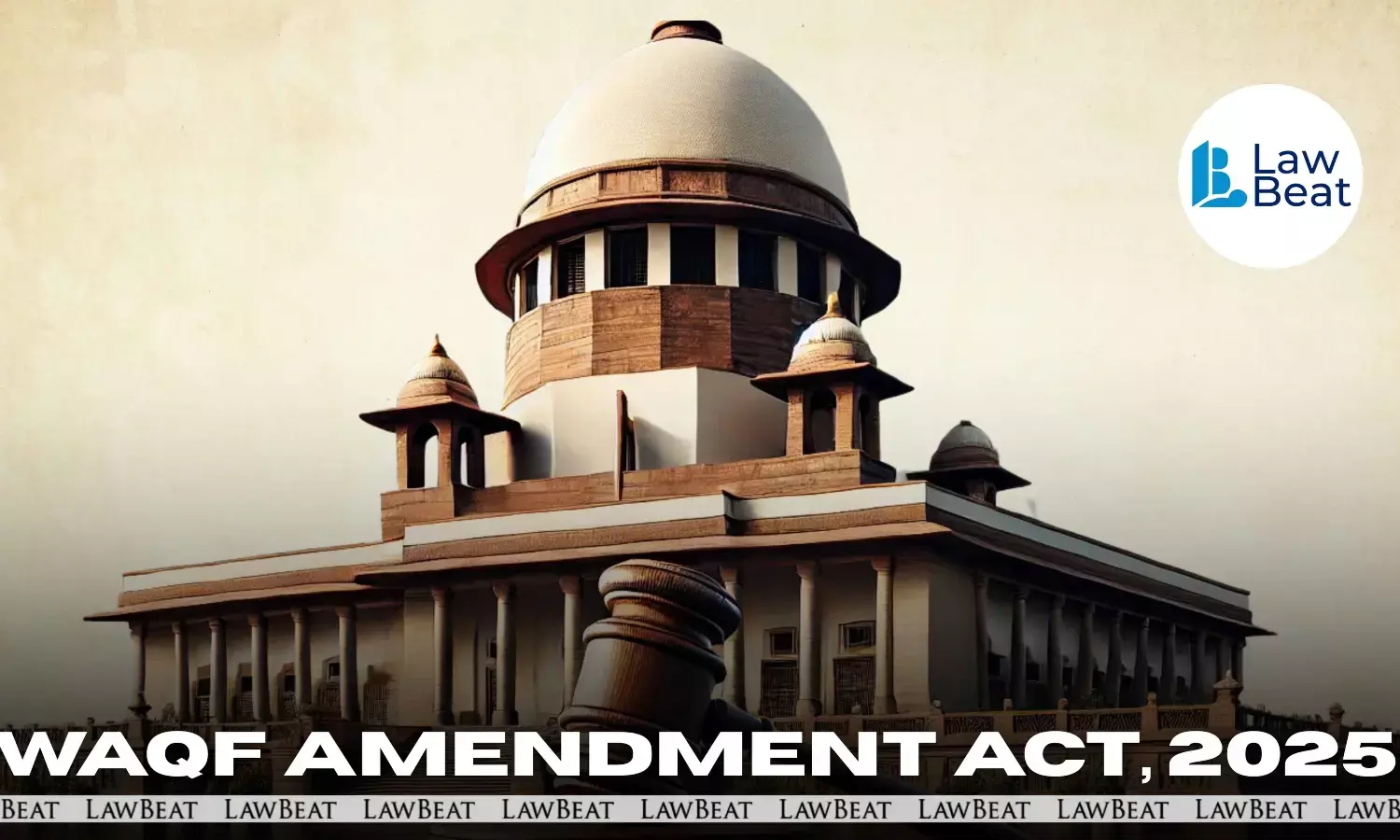All India Muslim Personal Law Board Calls 'Essential Religious Practice Test Obsolete', Questions JPC Legitimacy Before Supreme Court

The All India Muslim Personal Law Board, in a rejoinder to the preliminary affidavit filed by the Centre, last month have asserted that the recent legislative changes in the Waqf (Amendment) Act, 2025, infringe upon fundamental rights and were passed through a flawed parliamentary process.
The rejoinder affidavit has filed in response to a batch of petitions, including those filed by several Waqf Boards, challenging the amendments on grounds of infringement of fundamental rights under Articles 25 and 26 of the Constitution.
The affidavit has been filed by Mohammed Fazrlurrahim, General Secretary of All India Muslim Personal Law Board.
The Board argues that the Respondents’ defense, that the amendments do not affect essential religious practices, is legally untenable. It states that compelling the Petitioners to undergo the “Essential Religious Practices” (ERP) test is not only constitutionally misplaced but also ignores the evolution of Indian constitutional jurisprudence.
Citing landmark decisions such as K.S. Puttaswamy (2017), Navtej Singh Johar (2018), and others, the Board contends that the ERP doctrine has been implicitly discarded in favor of rights-based interpretations of Articles 14, 19, and 21.
It also underscores that Articles 25 and 26; which guarantee freedom of religion , include a right to privacy, autonomy, and community exclusion, aspects protected under Article 21. “The government today cannot invoke ERP to escape legal scrutiny,” the Petition states, arguing for a shift from ERP to a rights-based adjudication of religious freedom.
Further, the Board critiques the role of the Joint Parliamentary Committee (JPC) constituted to review the Waqf (Amendment) Bill. It alleges that the JPC proceedings were procedurally inadequate, with clause-by-clause analysis not undertaken, dissenting voices sidelined, and critical documents withheld.
Quoting comparative democratic studies and a dissent note from within the JPC itself, the Petition calls the committee process a “ritualistic consultation” devoid of substantive engagement.
“The JPC cannot become a procedural refuge (for the government) but must be a site of meaningful democratic reckoning—where consultation is not just heard, but listened to, where reports are not just written, but acted upon, and where the committee does not merely exist, but performs,” the Board argues, adding that deliberation without impact undermines both democratic ideals and legislative legitimacy.
On the issue of judicial review, the Board relies on precedents like Raja Ram Pal v. Speaker, Lok Sabha (2007) and Amarinder Singh v. Punjab Vidhan Sabha (2010), to contend that legislative scrutiny by a JPC cannot shield a law from judicial examination.
“Judicial review is part of the basic structure of the Constitution,” the Board asserts, “and the rigour of legislative procedure is irrelevant to the courts' authority to assess constitutionality.”
On the contrary, the Association for the Protection of Civil Rights (APCR) has strongly opposed the plea, terming it “misleading,” “surreptitious,” and a “misuse of judicial process.” The APCR has contended that the petition lacks locus standi, fails to present any credible evidence or injury, and seeks to propagate unsubstantiated communal narratives regarding the alleged encroachment of Hindu religious land.
Case Title: In Re: The Waqf (Amendment) Act, 2025 (3)
